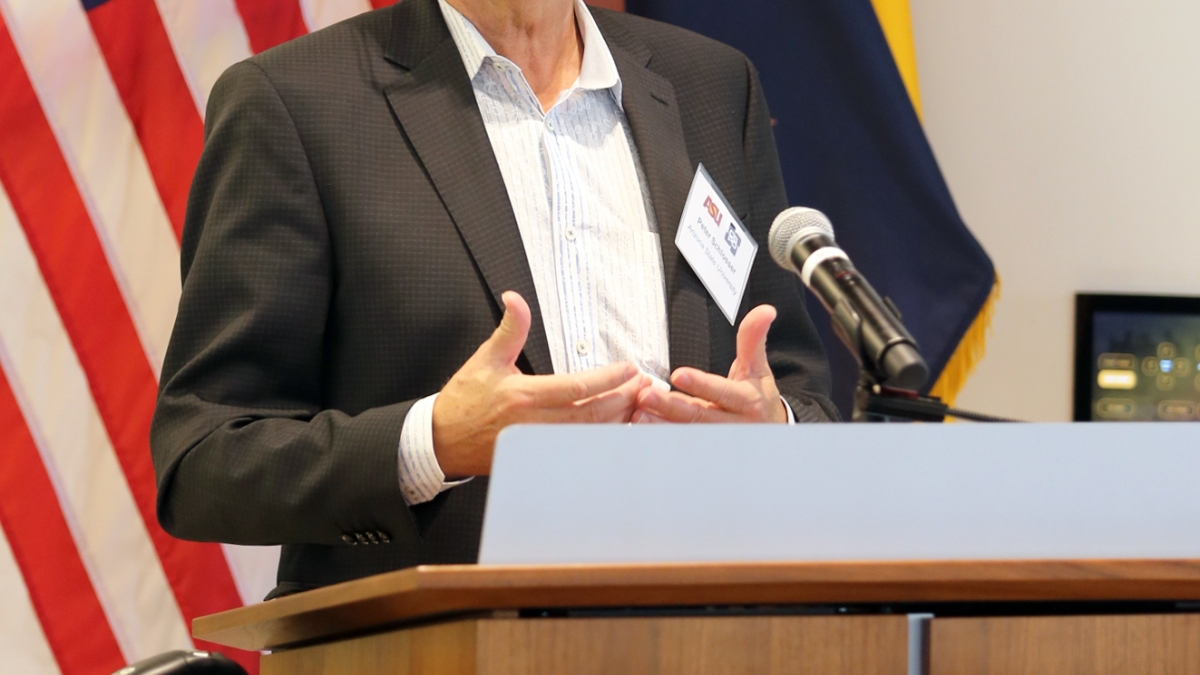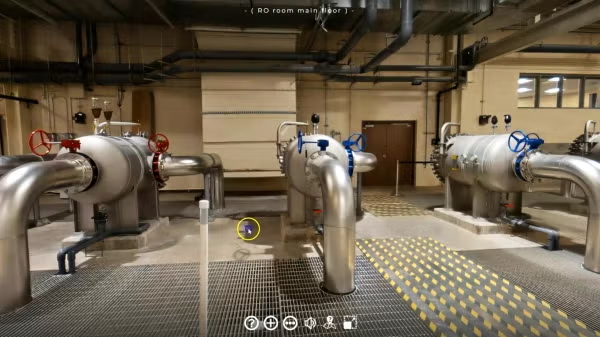Transitioning to a sustainable future: Is it easy?

ASU's Peter Schlosser, vice president and vice provost of the Global Futures Initiative, speaks at an open workshop through the Global Sustainability Strategy Forum at the Barrett & O'Connor Washington Center on Jan. 22. Photo by Hager Sharp
On Jan. 22, Arizona State University’s Consortium for Science, Policy & Outcomes (CSPO) convened leaders from universities, businesses, government and civil society to discuss potential solutions to the critical, complex challenges of sustainability and the future of our planet.
The open workshop “What Will It Take to Transition to a Sustainable Future?” was held at the Barrett & O’Connor Washington Center and was organized in coordination with academic leaders from the Institute for Advanced Sustainability Studies in Potsdam, Germany, as part of a series of events held through the Global Sustainability Strategy Forum.
Event leaders and attendees discussed issues ranging from decarbonization to food sufficiency to water and energy access and how different sectors can contribute to alleviating issues regarding sustainability.
In remarks to attendees, Sander van der Leeuw, ASU Foundation Professor in the School of Human Evolution and Social Change in The College of Liberal Arts and Sciences and co-director of the ASU-SFI Center for Biosocial Complex Systems, expressed a need to communicate more broadly about sustainability to the general public, as opposed to focusing on policymakers, businesses or nonprofits. He said social movements have been important advocates for a more sustainable future, but that collaboration among groups and movements will be important for long-term solutions.
“We’re not just dealing with a climate problem — we’re dealing with a societal problem,” van der Leeuw said. “And we have the elements for a solution but no clear expression of a collective vision where people can flock.”
Peter Schlosser, vice president and vice provost of the Global Futures Initiative at ASU, led the main discussion about achieving sustainability, which he believes should be collaborative and avoid unhealthy discourse.
“A lot of attention is on climate, but sustainability goes beyond climate, which can be a polarizing topic,” Schlosser said. “If we’re just using it to polarize discourse, it’s counterproductive.”
Schlosser also noted that achieving a “sustainability transition” will require more than changes to the Earth’s physical conditions. He believes it will require changing how people, businesses and institutions behave.
“Natural science focuses a great deal on physical environment,” Schlosser said. “And it’s possible that we forget about the behavioral piece of science, forgoing a holistic perspective of sustainability.”
CSPO at ASU is an intellectual network aimed at enhancing the contribution of science and technology to society’s pursuit of equality, justice, freedom and overall quality of life. CSPO creates knowledge and methods, cultivates public discourse and fosters policies to help decision makers and institutions grapple with the immense power and importance of science and technology as society charts a course for the future. ASU and IASS hope to continue hosting events through the GSSF in order to continue bringing people together to discuss the future of sustainability.
More Environment and sustainability

Public education project brings new water recycling process to life
A new virtual reality project developed by an interdisciplinary team at Arizona State University has earned the 2025…

ASU team creates decision-making framework to improve conservation efficiency
Conserving the world’s ecosystems is a hard job — especially in times of climate change, large-scale landscape destruction and…

Mapping the way to harvesting water from air
Earth’s atmosphere contains about 13 trillion tons of water.That’s a lot of water to draw upon to help people who are contending…

